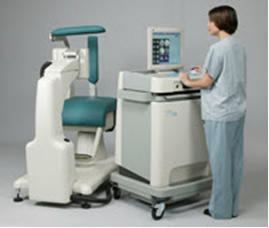Nuclear Cardiac Imaging
Our mission is to improve the health and well-being of our Bay Area residents through integrated and compassionate patient care, education and research.
Welcome new doctors
Upgraded new patient portages
Redesigned website
Nuclear Cardiac Imaging
Nuclear Cardiac Imaging
Nuclear cardiac testing is used to help determine whether or not you have coronary artery disease (CAD) and if you do, to what degree. For patients with known CAD, these tests can also help measure how well treatment is working.
Myocardial Perfusion Imaging
Stress myocardial perfusion imaging is an imaging technique that assesses the flow of blood to your heart muscle. This test will help your doctor know if your heart is receiving enough blood and if you may have coronary artery disease. If there are blockages, this test will help identify their location and severity.
Patient preparation
- During the 24 hours before your myocardial perfusion imaging test, it is important to totally avoid caffeine. Please do not eat or drink anything containing caffeine, including coffee, tea, chocolate, sodas, and some pain relievers, such as Excedrin and Anacin. Don’t drink decaffeinated coffee, teas or sodas, either, as they often contain trace amounts of caffeine.
- For 4 hours before your test, don’t eat or drink anything except water.
- Please bring a list of your medications to your appointment. You should also receive instructions from your doctor about whether or not to take your medications before the test. If you don’t receive these instructions, please call your doctor.
- Wear comfortable clothing and walking shoes if your test will require walking on the treadmill
What to expect?
Our nuclear technologist will start a small IV line into your arm and inject a small amount of a radioisotope or tracer. The tracer is not a medicine or a dye, and you will feel no ill effects from it. The tracer is taken up by the heart muscle in proportion to the blood flow. Two sets of images will be acquired. The first set of pictures shows your heart at rest. Depending on which test your doctor has ordered, your heart will be stressed either by treadmill exercise or by IV injection of medication (adenosine). The second set of pictures is taken after your heart has been stressed. Please plan on a total of 2 1/2 hours for your myocardial perfusion imaging test.
Stress testing is typically very safe. However, as with any medical procedure, complications may occur. Your heart rate and rhythm and vital signs are continuously monitored during the stress portion of the test. Staff is trained to respond appropriately if an emergency occurs.
a) Treadmill stress test: If you are having a treadmill myocardial perfusion imaging test, you will walk on the treadmill until your heart reaches its peak heart rate. This rate is calculated based on your age. At this heart rate, your arteries are completely dilated and more of the radioisotope tracer is injected. You will walk for an additional minute to circulate the tracer and then will be asked to drink some juice or water.
b) Adenosine stress test: Adenosine is a medication that dilates your blood vessels. It is given through your IV for a total of four minutes. While some patients feel no effects from the adenosine, others feel chest pressure or tightness, chest pain, flushing, lightheadedness, dizziness, nausea and/or shortness of breath. Two minutes after the adenosine injection begins, your arteries will be completely dilated and a radioisotope tracer is injected through the IV. Any adverse symptoms will typically resolve quickly after the infusion of adenosine is complete.
About Radiation
Doses of radioactive elements used in nuclear imaging are very small and fall well within the safety limits determined by the Nuclear Regulatory Commission, and equivalent to an x-ray.
Special precautions
In general, pregnant and nursing women should not have a nuclear stress test. If you are pregnant, think you may be pregnant or are currently nursing, let your physician know.
Test results
After your cardiologist reviews the test, he or she will discuss the test results with you and a report will be mailed to your primary care physician.
